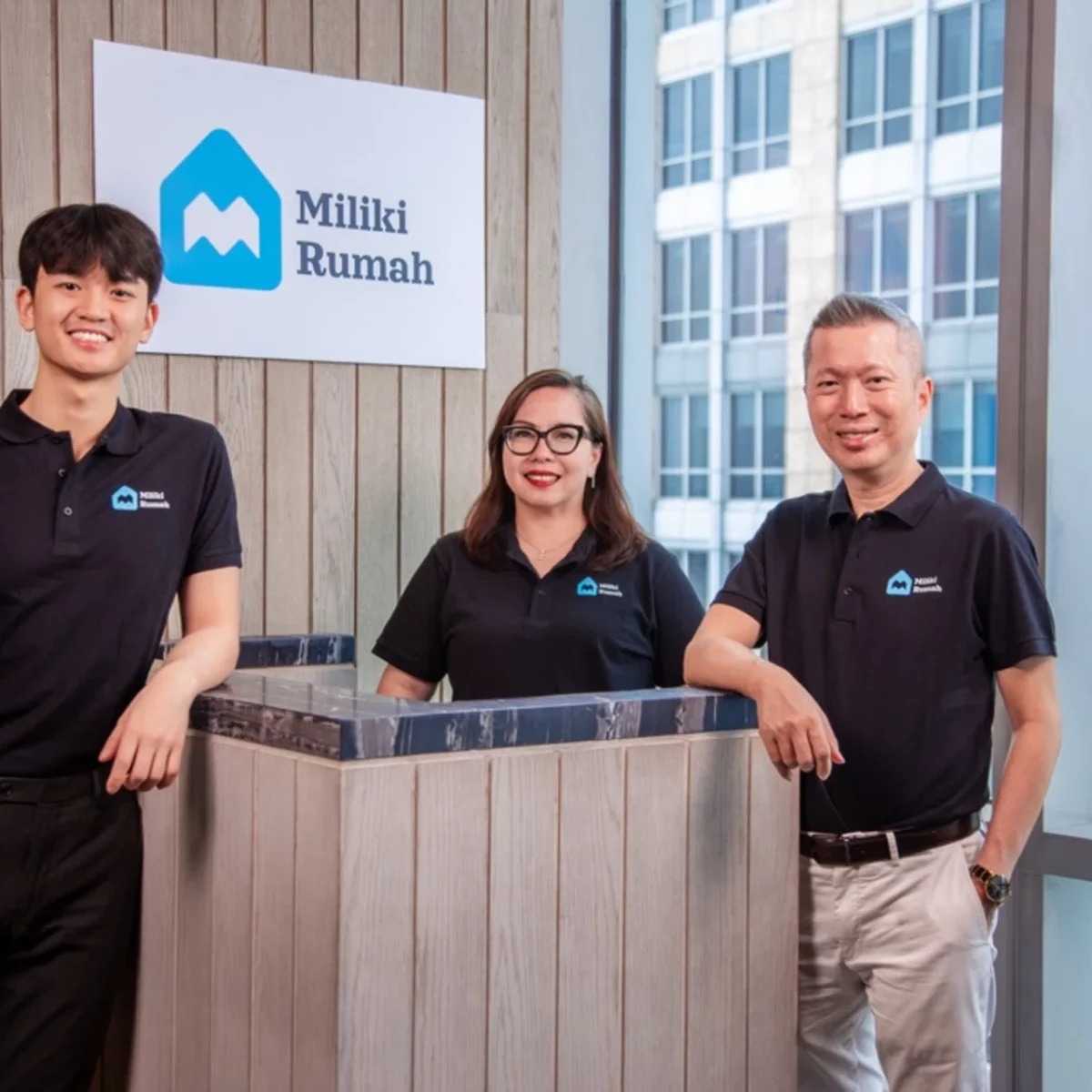[JAKARTA] Proptech startup MilikiRumah is aiming to raise a US$50 million private equity fund to scale its rent-to-own housing programme in the country, targeting segments of the population typically excluded from conventional mortgage financing.
With early backing from regulated asset managers – including Ruifeng Wealth Management, Tembusu Partners and Trigger Asset Management – the company kicked off its fundraising efforts with a planned first close of US$10 million in the third quarter of this year.
MilikiRumah aims to raise the remaining capital in successive US$10 million tranches over the next two years, enabling it to gradually scale housing development under its rent-to-own model.
Co-founder and chief executive Winston Lee told The Business Times that the funds will be used to develop build-to-order landed homes in collaboration with local real estate developers.
The company aims to bridge the financing gap for consumers often excluded from traditional mortgage systems, such as freelancers, influencers, and gig workers. They typically lack stable incomes or have high debt-to-income ratios, making them less appealing to banks.
“We see ourselves as credit doctors. We segment our customers and provide tailored support; many are middle-class Indonesians, families working hard to buy their first home,” noted Lee.
A NEWSLETTER FOR YOU

Friday, 8.30 am
Asean Business
Business insights centering on South-east Asia’s fast-growing economies.
MilikiRumah is owned and operated by Rightkey Capital, a Singapore-registered company. The venture was founded by former PropertyGuru executive Lee, together with co-founder Marine Novita, who also previously held a role at the property platform.
The company currently has a pipeline of 500 hectares of land spread across seven to 10 parcels – mostly in Greater Jakarta – that can accommodate up to 45,000 homes. However, fully developing the sites would require between US$100 million and US$150 million in funding.
“With just the initial US$10 million, we can already build around 2,700 landed homes,” Lee pointed out. “The speed at which we hit our 45,000-home target really depends on how quickly we can raise the remaining capital.”
MilikiRumah offers a rent-to-own model that allows prospective homebuyers to move into a property while gradually building their financial eligibility. During an initial period of six to 12 months, tenants live in the home and make regular payments, helping them establish a credible payment history.
If they meet the required criteria by the end of the term, a partnering bank steps in to provide mortgage financing, enabling the tenant to formally purchase the home.
The company has established partnerships with Bank Tabungan Negara (BTN), Indonesia’s largest state-owned mortgage lender, and Bank Syariah Indonesia. It is also in the process of finalising collaborations with BTN Syariah and Permata Bank to further expand its financing network.
MilikiRumah has entered a joint venture with local developer Badak Perkasa Group to develop a residential complex in Tangerang – an hour’s drive from Jakarta.
Under its rent-to-own model, tenants pay an average of 4.8 million rupiah (S$378) per month. These payments are divided into rent and savings, with the savings component gradually building equity towards a 10 per cent down payment. This structured approach is designed to help tenants eventually qualify for a mortgage covering the remaining 90 per cent of the home’s value.
As at the second quarter, the company has launched 95 homes using internal equity. It is aiming for 30 bookings by the end of June, with a target of 60 by July or August. Lee said that the company’s research involving 300 underbanked prospective buyers showed that 90 per cent are expected to qualify for a bank loan after building up a 10 per cent home equity deposit through the programme.
He added that the fund’s dual mission – delivering both financial returns and social impact – has resonated with potential limited partners, especially given its projected annual internal rate of return of 20 per cent. “What sets us apart from traditional private equity real estate funds is that we’re not just building homes, we’re building communities.”
Founded in September 2024, the company has closed its seed round with S$2 million in funding. It was led by Singapore-based family office Ruifeng Wealth, with participation from angel investors including PropertyGuru co-founder Jani Rautiainen and PropertyGuru Singapore country head Tan Tee Khoon.
Lee said that the company is aiming for Series A company funding targeting to close in the first quarter of 2026.
A market in need
Indonesia is facing a severe housing shortage, with the backlog reaching an estimated 15 million units as at 2025, according to official data. To address this gap, the government is exploring new financing strategies, including the possible issuance of bonds to support low-cost housing initiatives.
The challenge is compounded by the fact that around 83 million people, or 58 per cent of the workforce as at August 2024, are employed in the informal sector, making it more difficult for many to access traditional housing finance.
Novita indicated that the strongest housing demand falls in the 300 million to 700 million rupiah price range – a market segment that accounts for roughly 70 per cent of national demand but remains underserved by financial institutions.
“There’s a nationwide disconnect between where the housing need is and where financing is actually available,” she said. “It’s not just in Jakarta – it extends across Java and beyond.”
While MilikiRumah remains focused on the Indonesian market for now, the company is beginning to see growing interest beyond its borders.
Novita noted that the rent-to-own model could be relevant in other major South-east Asian cities such as Bangkok and Manila, where challenges around home affordability and mortgage accessibility are similarly pronounced.
“In Bangkok, for example, developers have told us that 60 to 70 per cent of entry-level mortgage applications are rejected,” she added. “We have had early discussions with several contacts in Thailand who are curious about how our model might work in their context.”
MilikiRumah’s rent-to-own scheme is not the first of its kind in Indonesia. Previously, state-owned housing finance company Sarana Multigriya Finansial partnered fellow state developer Adhi Commuter Properti to offer residential areas integrated with public transportation hubs.
Challenges remain
Still, the business is not without challenges. Dian Safitri, a senior property agent, said that rent-to-own schemes could help ease Indonesia’s housing shortage. However, one major hurdle is the tax system, which treats rental and sale transactions separately, raising the risk of double taxation. “This drives up the final price of the unit, making it more expensive for consumers, who ultimately bear the heavier financial burden,” she explained.
Nailul Huda, director of economics at the Centre of Economic and Law Studies, said that rising property prices, especially in areas surrounding Jakarta, have made it increasingly difficult for informal workers to afford homes outside government-subsidised schemes. “With layoffs on the rise and ongoing economic uncertainty, the purchasing power of informal workers to buy homes continues to decline,” he noted.





